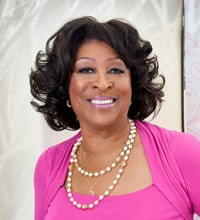When Karen E. Jackson was diagnosed with breast cancer in 1993, she never thought it would happen to her. Yes, her aunt died from it years prior, but in Jackson’s mind, she was living a health lifestyle and felt invincible.
It couldn’t happen to her, until it did.
While she believed having a strong support system at home, a good relationship with her doctor and solid health insurance helped her overcome her diagnosis, she often wondered how many Black women that lack those vital things, fell through the cracks.
That, and Jackson reflected on how lonely she felt in support groups where she one of the only Black women in attendance.
“I needed sisterhood during that time. I needed to be around women who looked like me to tell me it was going to be OK,” Jackson told Black Health Matters.
Taking those two issues to heart, in 1994 Jackson founded Sisters Network Inc., a national organization that provides breast health awareness, guidance and even financial support for African-American women fighting breast cancer.
Black Health Matters sat down with Jackson to talk about being diagnosed with breast cancer, the impact Sisters Network Inc. has on the community and what Black women need to know about their breast health.
Black Health Matters:Before your diagnosis, how often were you getting mammograms?
Karen E. Jackson: I was pretty vigilant about my breast health since my aunt died from it. However, back then not all doctors were doing ultrasounds to go along with the mammograms, nor were they telling you about it. See, ultrasounds are able to pick up certain things that mammograms can miss.
But, despite a clear mammogram, I just knew that something was wrong. I just had this weird sensation in my left breast, so I ended up getting an ultrasound that found that I had a fleshy tumor. From there, I was diagnosed with Stage 2 breast cancer.
That happened, all because I listened to that voice in my head. What would have happened if I ignored it? This is why I tell women to be vocal about concerns they have with the bodies, educate themselves and be proactive. Given that we are more likely to die of breast cancer than white women, we need to take our breast health very seriously.
BHM: And you’re cancer free now?
KEJ: I sure am! I’ve been blessed to survive this and I wanted to take that blessing and help others to survive as well. I took the focus off me and put it on other women.
BHM: While Sisters Network is currently a national organization, it started off pretty small in Houston. What were those early days like?
KEJ: I was out in the streets talking to anyone who would listen about Black women and breast cancer. I didn’t care if I was in line at the movie theater, I would just talk about it. Some might say I was overbearing, but I didn’t care—I was going to save a life the best way I knew how. I did that without any funding.
We started off with 15 women in Houston and over the years, we began to grow. We go the churches, we talk to the sororities, we work with hospitals and for the past eight years, we have a national 10K walk. We have our boots on the ground to raise awareness because too many women don’t know what they need to about this disease, nor do they have the support.
After all those years of work, we currently have chapters in states including Missouri, Tennessee and New York.
BMH: Over the years, what are some of the biggest myths you’ve heard about breast cancer?
KEJ: Oh, I’ve heard so much misinformation; I can’t believe it. But one of the most dangerous myths I’ve heard is this idea that if you just talk about breast cancer, you’ll get it. That just doesn’t make any sense.
I come from a place where the more knowledge you have about this disease, the better off you will be to surviving it and getting screened for it. Knowledge is power; it can’t hurt you.
Another issue we talk about is how people always think that doctors know what’s best. Yes, they are the experts and yes, we’ve been taught that they are here to protect us, but the same can be said about the police and look what’s being on with them when it comes to Black lives. It’s OK to ask for a second opinion or to speak up if you are having questions or issues with your health or diagnosis.
BHM: What are some of the obstacles Sisters Network currently faces?
KEJ: Funding is always an issue and has decreased in our community, despite the breast cancer diagnoses among Black women not decreasing.So the work still has to get done, it just becomes harder to do, but we will never give up.
BHM: Can you offer three breast health tips for our readers?
KEJ: The first one is to make it a priority. You need to be thinkingandtalking about your breasts, self-exams and mammograms. Secondly, if you’re diagnosed with breast cancer, always get a second opinion. Finally, if you’re diagnosed, reach out and join a group like Sisters Network that is dedicated to Black women in order to get the support and sisterhood you deserve.
Learn more about Sisters Network Inc.here.
By Kellee Terrell





